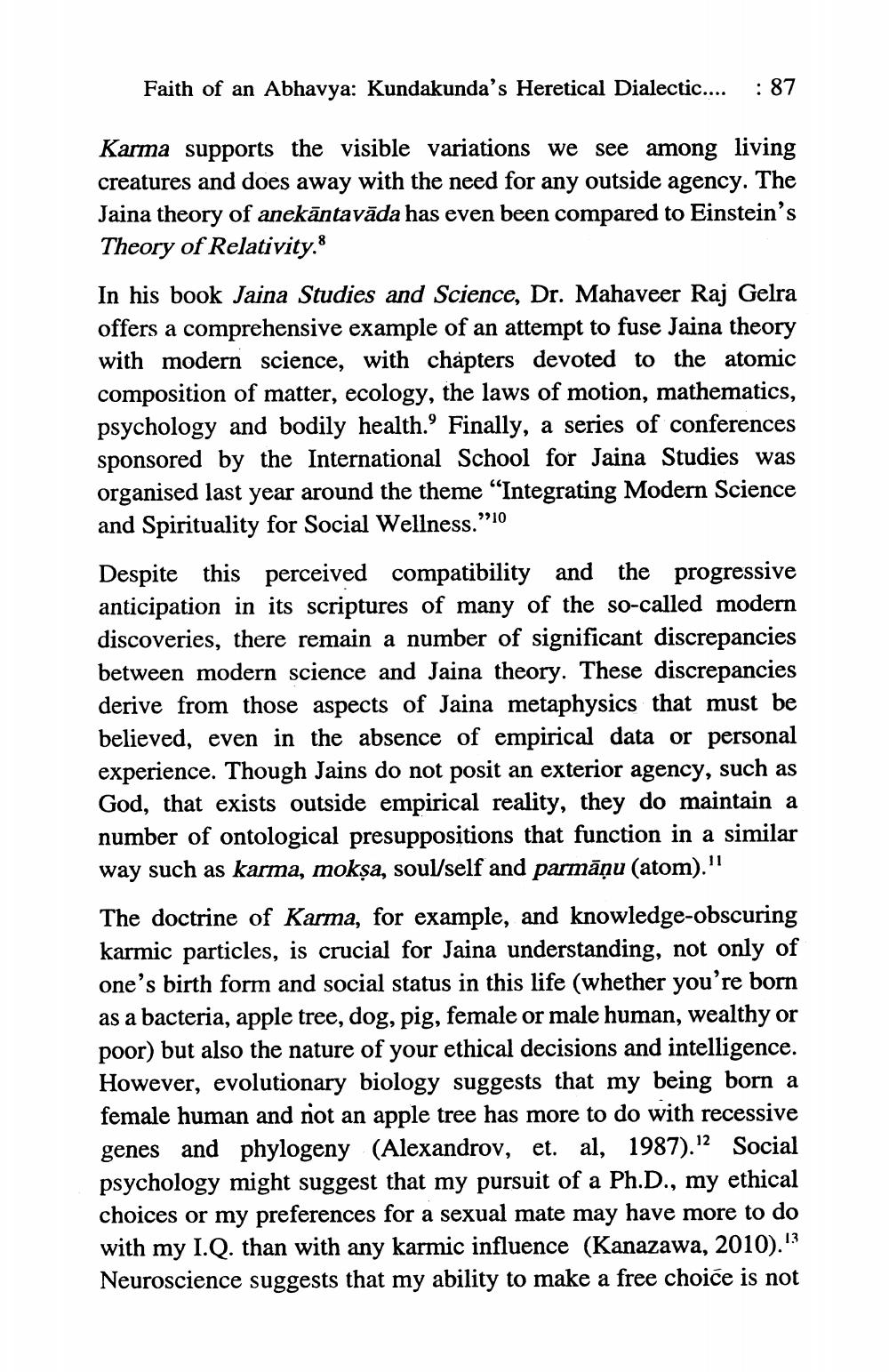________________
Faith of an Abhavya: Kundakunda's Heretical Dialectic....
: 87
Karma supports the visible variations we see among living creatures and does away with the need for any outside agency. The Jaina theory of anekāntavāda has even been compared to Einstein's Theory of Relativity.8 In his book Jaina Studies and Science, Dr. Mahaveer Raj Gelra offers a comprehensive example of an attempt to fuse Jaina theory with modern science, with chapters devoted to the atomic composition of matter, ecology, the laws of motion, mathematics, psychology and bodily health. Finally, a series of conferences sponsored by the International School for Jaina Studies was organised last year around the theme “Integrating Modern Science and Spirituality for Social Wellness.”10
Despite this perceived compatibility and the progressive anticipation in its scriptures of many of the so-called modern discoveries, there remain a number of significant discrepancies between modern science and Jaina theory. These discrepancies derive from those aspects of Jaina metaphysics that must be believed, even in the absence of empirical data or personal experience. Though Jains do not posit an exterior agency, such as God, that exists outside empirical reality, they do maintain a number of ontological presuppositions that function in a similar way such as karma, mokṣa, soul/self and parmāņu (atom)." The doctrine of Karma, for example, and knowledge-obscuring karmic particles, is crucial for Jaina understanding, not only of one's birth form and social status in this life (whether you're born as a bacteria, apple tree, dog, pig, female or male human, wealthy or poor) but also the nature of your ethical decisions and intelligence. However, evolutionary biology suggests that my being born a female human and not an apple tree has more to do with recessive genes and phylogeny (Alexandrov, et. al, 1987).2 Social psychology might suggest that my pursuit of a Ph.D., my ethical choices or my preferences for a sexual mate may have more to do with my I.Q. than with any karmic influence (Kanazawa, 2010).13 Neuroscience suggests that my ability to make a free choice is not




